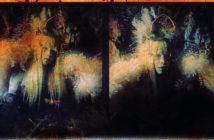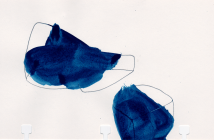So, I did a stupid thing.
One of the ways my students can get extra credit is if they go to an art event and write a review. The stupid thing I did was reminding them of the extra credit opportunity the same day I announced an upcoming performance of mine.
Then I tried to do a happy thing.
This BR&S residency has been a really great way to force myself to catch up on some reading. I took a day last week to stay in my bed and read. Coffee in hand, I was sure this reading day was going to be the one where I actually finish Air Guitar or The Pink Glass Swan… but then I got (reasonably) distracted.
The following post is a combination of quotes from my student’s (rather inquisitive) review of my work and an article titled Lunatics with Lethal Combat Skills: Dark Doubles, Bacchae, and Soulless Women in Xena: Warrior Princess by Frances Tomaczyk1.
"… I went with a friend to UConn to see my teacher, J.R. Uretsky’s performance … The friend I went with said she enjoyed the show up until Uretsky’s performance.2"
"Horror's power lies in its ability to 'take apart a secure sense of self' and to explore 'the fragile border between identity and non-identity as well as those social and sexual bonds that reveal the limits of our autonomy.'" (McCracken 129 3). In X:WP [Xena: Warrior Princess], the appropriation of concepts and images such as vampires, doppelgangers, alternative selves, monsters and hauntings can help to disrupt the cultural binaries, such as reality/fantasy, inside/outside, self/other, that construct and sustain our sense of identity. Indeed, the use of horror and the contradictory treatment of gendered and sexualized identities in X:WP effects a shift in focus away from conventional expectations about social and sexual relations, and enables alternative forms of subjectivity and embodiment to be imagined."
"The performance art she does is out there, and that’s putting it nicely because most people I could tell would be confused and or hate her work. Me, on the other hand was quite amused by the strange and awkwardness of Uretsky’s acts."
"In this respect, their otherness and difference from us not only threatens a loss of control, but also helps to establish our own normality, and confirm the fantasy of a unified, coherent self (Blackman and Walkerdine 153 4). In contrast to conventional horror, the setting and subjects of X:WP resist defining a convincing common reality. Instead, they render the borders of self/non-self, man/woman, heterosexual/homosexual, good/evil, human/non-human, and so on, unclear and uncertain."
"She first appeared on stage in a handmade baby pink costume holding in her hand a melting ice cream cone and the other hand and arm was tucked inside the costume. For the most part she stood on stage smirking and softly giggling while a recording of her voice talked about experiences and feelings she had in her early twenties."
"In as much as "identity" is assured through the stabilizing concepts of sex, gender and sexuality, the very notion of "the person" is called into question by the cultural emergence of those "incoherent" or discontinuous gendered beings who appear to be persons but who fail to conform to the gendered norms of cultural intelligibility by which persons are defined. (Butler 23 5)"
"Near the end her arm that was tucked inside, emerged from the pink costume to reveal a plastic kelly green closed sleeve that covered her whole arm and hand. At this point the story has gotten pretty intense and awkward, and her waving the very weird kelly green sleeve stressed it."
"Any form of sexual identity that exceeds heterosexual ideals, or transgresses the boundaries of this model, through sex or gender or desire, appears as unintelligible, perverse, monstrous, or as some kind of biological or social developmental failure."
"By using her body as a puppet, strangely Uretsky’s performances give you that awkward feeling she had in her stories."
"One of the functions of the gothic double is to upset the normality of accepted desires, opening up other, transgressive possibilities. The most powerful of these is the desire to be the monstrous woman, who is both terrifying, disgusting and, at the same time, uncannily attractive" (144).
"Although I wasn’t able to understand the whole thing because the recording was a bit fast and each act did seem a little long to keep focus, I did understand what emotion she was trying to convey to her audience. Because of this, people with patience and interest in things out of the ordinary, I think would get the most out of Uretsky."
[1] Tomaczyk, Frances. Lunatics with Lethal Combat Skills: Dark Doubles, Bacchae, and Soulless Women in Xena: Warrior Princess. Femspec 2002: 38-. GenderWatch. Web. 10 Dec. 2012.
[2] Vega, Julie. J.R. Uretsky at the Fall UConn Puppet Slam. Student Paper, 2012.
[3] McCracken, Scott. Pulp: Reading Popular Fiction. Manchester: Manchester UP, 1998.
[4] Blackman, Lisa and Valerie Walkerdine. Mass Hysteria: Critical Psychology and Media Studies. Hampshire: Palgrave, 2001.
[5] Butler, Judith. Gender Trouble. London: Routledge, 1999.






